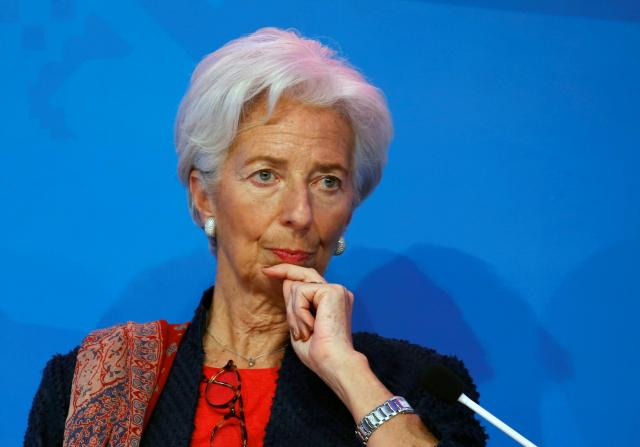Following her likely confirmation in November, Christine Lagarde will succeed European Central Bank President Mario Draghi at a time of deepening polarization among eurozone member states. It will take all of her skills as a leader and communicator to safeguard the institution's independence and ensure that it has the tools it needs.
As the nominee to succeed European Central Bank President Mario Draghi in November, Christine Lagarde may be hoping that her job will be somewhat easier than that of her predecessor. Yet the opposite is likely to be true. Though Draghi was tasked with guiding the ECB through years of crises, Lagarde will have to pursue eurozone reforms at a time of deepening polarization among member-state governments. It will take all of her skills as a political mediator, crisis manager, and effective communicator to safeguard the ECB’s independence and effectiveness.
This much is painfully obvious: completing the monetary union is now a distant and unlikely prospect. Member-state governments have lost the will to pursue a capital-market or banking union, a common safe asset, joint fiscal and stabilization policies, or most other reforms. Owing to a lack of mutual trust, member states will not give up any more national sovereignty, even though pooling sovereignty at the European level would ultimately benefit everyone.
The implications for the ECB are clear: it will keep struggling to make monetary transmission work in the context of a weak and divergent eurozone economy. It will also continue to bear the burden of maintaining financial stability, owing to member-state governments’ intransigence in implementing their own fiscal, financial, and structural reforms. As such, financial fragmentation and the possibility of a “doom loop” between domestic banks and governments will persist. And, adding insult to injury, governments will continue to blame the ECB and the euro for their own mistakes, thereby threatening the bank’s independence.
What should the ECB do? The short answer is that it must protect its own credibility by both adjusting its mandate and enlarging its policy toolkit. To that end, its first and most urgent priority is to fulfill its price-stability mandate, which it has long been failing to meet. With the eurozone economy weakening, a return to more expansionary policies may prove necessary, even if it draws objections from certain member states.
Second, the ECB needs to review and revise its strategy to include a more flexible and symmetric definition of price stability, affording itself a wider band (that is, a more flexible inflation target) and a longer time horizon. At the same time, it will need to resist pressure from Germany and others who want to use monetary policy to force other governments onto the “right” fiscal- and structural-policy track. Unlike outright monetary transactions and quantitative easing, acquiescing to such demands really would violate the ECB’s mandate.
Third, the ECB should do what is needed to improve the transmission of its policies to individual regions and sectors. It has already taken some steps in this direction with its conditional liquidity program and the acceptance of different types of collateral from member countries. But it also needs to clarify once and for all that its policy toolkit allows for the purchase of government bonds. Only then can it protect itself from challenges launched through the German Constitutional Court and other authorities.
Fourth, the ECB should make transforming the euro into a global currency one of its explicit objectives. A truly global euro would have substantial economic, financial, and geopolitical benefits, and ultimately would strengthen the effectiveness of ECB monetary policy. To be sure, strengthening the euro’s international role mostly depends on governments completing the Economic and Monetary Union. But the ECB should abandon its position of neutrality and start actively pushing for this goal. At a time when the US dollar and Chinese renminbi are being politicized, and companies such as Facebook are rolling out private currencies, the need for a stronger euro has gained new urgency.
Finally, the ECB must improve its communication. The best thing it can do to push governments toward reform is to deny them a scapegoat. Rather than making itself an easy target for national governments to blame, the bank needs to ensure that citizens understand why the euro is important for them personally, and what it can and cannot accomplish. Fortunately, communicating effectively with not just politicians and financial markets but also citizens is one of Lagarde’s proven strengths.
Former European Commission President Jacques Delors once quipped that, “Not all Germans believe in God, but they all believe in the Bundesbank.” While a central bank may not want a quasi-religious following, that is no reason for failing to protect its own credibility and independence. The ECB’s job is not getting any easier. But by adjusting its strategy and modernizing its policy tools, it can prepare itself for whatever the future may hold.
Marcel Fratzscher, a former senior manager at the European Central Bank, is President of the think tank DIW Berlin and Professor of Macroeconomics and Finance at Humboldt University of Berlin.
Read the original article on project-syndicate.org.
More about: economy
















































